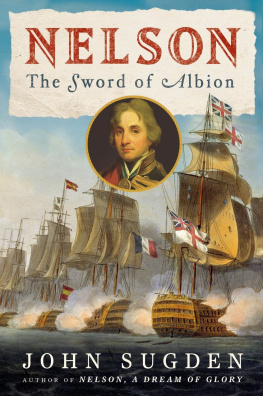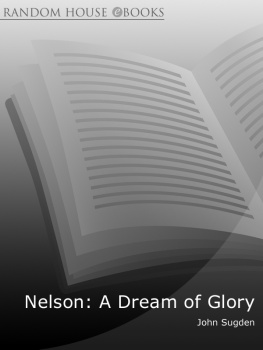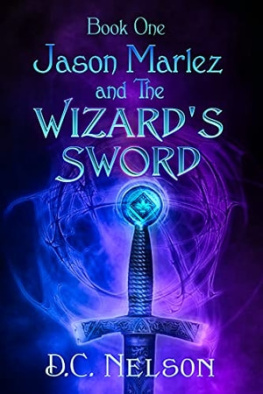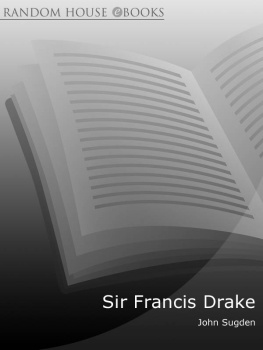John Sugden - Nelson: The Sword of Albion
Here you can read online John Sugden - Nelson: The Sword of Albion full text of the book (entire story) in english for free. Download pdf and epub, get meaning, cover and reviews about this ebook. year: 2013, publisher: Bodley Head, genre: Science. Description of the work, (preface) as well as reviews are available. Best literature library LitArk.com created for fans of good reading and offers a wide selection of genres:
Romance novel
Science fiction
Adventure
Detective
Science
History
Home and family
Prose
Art
Politics
Computer
Non-fiction
Religion
Business
Children
Humor
Choose a favorite category and find really read worthwhile books. Enjoy immersion in the world of imagination, feel the emotions of the characters or learn something new for yourself, make an fascinating discovery.
- Book:Nelson: The Sword of Albion
- Author:
- Publisher:Bodley Head
- Genre:
- Year:2013
- Rating:4 / 5
- Favourites:Add to favourites
- Your mark:
- 80
- 1
- 2
- 3
- 4
- 5
Nelson: The Sword of Albion: summary, description and annotation
We offer to read an annotation, description, summary or preface (depends on what the author of the book "Nelson: The Sword of Albion" wrote himself). If you haven't found the necessary information about the book — write in the comments, we will try to find it.
Nelson: The Sword of Albion — read online for free the complete book (whole text) full work
Below is the text of the book, divided by pages. System saving the place of the last page read, allows you to conveniently read the book "Nelson: The Sword of Albion" online for free, without having to search again every time where you left off. Put a bookmark, and you can go to the page where you finished reading at any time.
Font size:
Interval:
Bookmark:

The author and publisher have provided this e-book to you for your personal use only. You may not make this e-book publicly available in any way. Copyright infringement is against the law. If you believe the copy of this e-book you are reading infringes on the authors copyright, please notify the publisher at: us.macmillanusa.com/piracy.
Contents
Book One:
I.
II.
III.
IV.
V.
VI.
VII.
VIII.
IX.
Book Two:
X.
XI.
XII.
XIII.
XIV.
XV.
XVI.
XVII.
Book Three:
XVIII.
XIX.
XX.
XXI.
XXII.
XXIII.
XXIV.
XXV.
XXVI.
This book is dedicated to
Will Sulkin, an editor among editors,
and to Terri and Philip,
the three who were there at the beginning





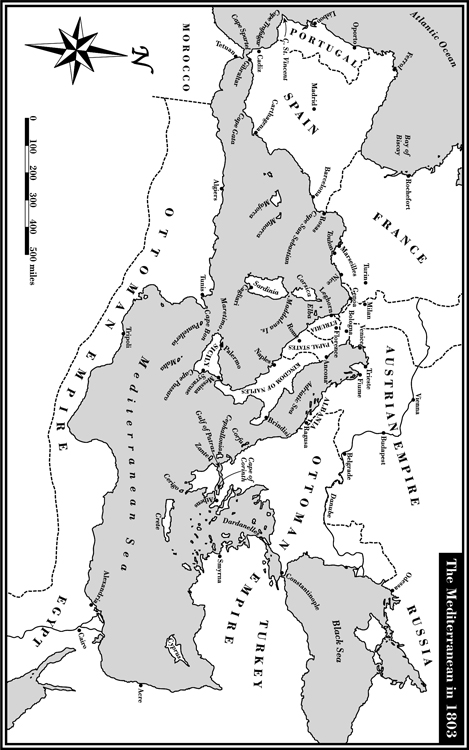
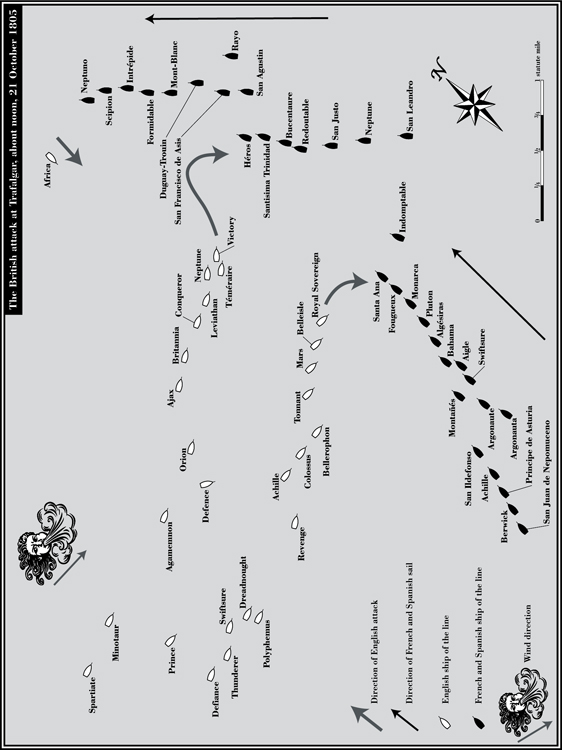
LIST OF ILLUSTRATIONS
INTRODUCTION
In eight short years Horatio Nelson, already a rear admiral and a national hero, turned himself into a major international figure and a deathless icon. Rich in the admiration of his countrymen and women, he was almost universally acknowledged to be the nations champion during a period of grave danger. At his peak his opinion on naval affairs carried more weight with ministers and prime ministers than that of any other officer, and his ability to inspire a fleet was unmatched. Appointed commander-in-chief of the Mediterranean in 1803 he bore one of the most awesome burdens of any public servant, commanding an area three times the size of Napoleons European empire with a handful of ships and influencing the destinies of half a dozen great powers and as many other significant nations. A perfectionist, constantly reaching for heights greater than he or anyone else had scaled, he delivered one sensational success after another in circumstances that would have repelled most contemporaries. In the parlance of today he was simply Britains one and only superstar. As the Earl of Malmesbury remarked, Nelson possessed the singular power of electrifying all within his atmosphere, and making them only minor constellations to this most luminous planet Every victory was greater than the last. Every additional difficulty seemed only to bring some new proof of the combination and powers of his mind, as well as the invincible force of his arms. His life was a mission with the essence of a tour de force, hurrying toward a bloody climax in the greatest clash of armour of the war, and one that would shape the fate of empires.
Nelson may have seemed an Achilles, but he was not without the proverbial heel. His was no steady upward trajectory, but a career of ups and downs in which victories were sometimes snatched from crippling reverses, not all of his making. And throughout, those closest to the revered warrior saw another man: emotional, disappointed, irritable, lonely, embittered, and above all acutely vulnerable. He searched for glory and what he called happinessfor him, no less than the utilitarian philosophers, a condition to which man naturally aspiredbut while the former gathered in full measure, the latter eluded him to the end. As his achievements thrust him before an ever larger public, the fault lines in his character were exposed, and his marital relations became the meat of public ridicule.
The Nelson record has been much distorted, most grossly by those who have deified or denigrated the admiral, but mystification had its roots in the man himself, for no man wanted more to be a hero. He exhibited his trophies, stage-managed public appearances, and manipulated the press to shape the desired image. When soliciting a vote of thanks from the London Corporation after his victory at Copenhagen, for example, he personally suggested an appropriate wording. Not wishing to appear immodest, he claimed to have taken it from the letter of a dear friend. The tribute pronounced him the Victor of the Nile, the conqueror of Copenhagen, St Vincents prop, the hero of the 14th February [battle of Cape St Vincent], the terror and stop of the Northern Confederacy, the restorer of the King of Naples, the preserver of Rome, the Avenger of Kings, and the Guardian Angel of England. The only man who in this war has been 127 days in battle and ever came off covered with glory, honor, virtue and modesty, The pride of his country and friends.
But of course no one but Nelson himself so assiduously counted his actions, or the enemy ships destroyed or taken in his train, and when the original eulogy is traced the friend reveals herself as none other than Emma Hamilton, the admirals mistress and most extravagant partisan. Yet even her embellishments were not enough for Nelson, who added to the litany of accomplishments. It was he who inserted the claim to have been the terror and stop of the northern confederacy, and whereas Emma had described him as the man of men who had triumphed in 127 engagements, the admiral made it the only man who had emerged from 127 days of battle. In this, as on many other occasions, Nelson sought to place every strut to his fame on public record.
The early biographers reflected Nelsons interest in his posterity. Theirs were monuments erected to praise a famous man, written under the gaze of influential patrons and participants they could not afford to offend. They dodged controversies to dwell upon the more splendid of their heros public services. Shortly after Nelsons death Lady Hamilton hired James Harrison, the editor of a series of British classics, to write a biography and he spent much of 1806 and 1807 at her home in Merton, accessing confidential papers and interviewing witnesses. With a large family to support, Harrisons affairs were desperate, and he depended entirely upon a frugal stipend from his publisher and Emmas legendary largesse. The Life was published in 1806. It is by no means as worthless as most subsequent writers would have us believe, but betrayed its origins, traducing the wronged Lady Nelson, who thought it a vile publication, and offering a spotty coverage of an illustrious career. A planned revision never appeared. On his part, William Nelson, the admirals brother, who received an earldom from a grateful nation, engaged a cleric named Nott to produce a rival publication using papers in his possession, but on learning that the Prince of Wales was patronizing a third project he deferred to its authors, John McArthur and James Stanier Clarke, the editors of a ponderous but popular serial entitled The Naval Chronicle .
Although Clarke claimed to have studied naval literature since early life it was McArthur (17551840), doctor in law, who was the key figure in what came to be recognized as the official life of Nelson, launched in two spacious volumes in 1809. He had been a prize agent and long standing promoter of the admiral. In 1799 he ferried Nelsons only fragment of autobiography into print, andif his own story is to be believedpersuaded the admiral to accept him as the authorized biographer. In all walks he had been a thorough partisan. When Sir Hyde Parker approached him with a vindication of his own shaky performance as commander-in-chief of the Baltic, McArthur advised against its publication, since it contained so many improper and ill-founded strictures upon Nelsons conduct during the campaign. Clarke and McArthurs book reflected the support of many naval friends and acquaintances, as well as the Nelson family, but it too confined itself largely to the creditable. McArthurs reputation has seesawed. Once uncritically plagiarized by legions of successors, he is now as lazily dismissed as an irrelevance. His work is certainly a difficult one, partisan and stuffed with inadequately rendered documents, but much quarried from the admirals papers found its only home in the books pages, and some of the eyewitness testimony has lasting value. However, from inception it was a commemoration, not a balanced portrait.
Next pageFont size:
Interval:
Bookmark:
Similar books «Nelson: The Sword of Albion»
Look at similar books to Nelson: The Sword of Albion. We have selected literature similar in name and meaning in the hope of providing readers with more options to find new, interesting, not yet read works.
Discussion, reviews of the book Nelson: The Sword of Albion and just readers' own opinions. Leave your comments, write what you think about the work, its meaning or the main characters. Specify what exactly you liked and what you didn't like, and why you think so.

